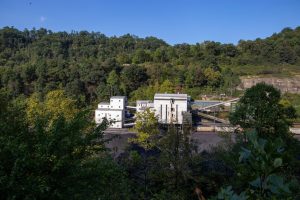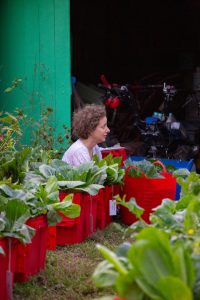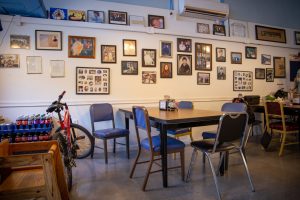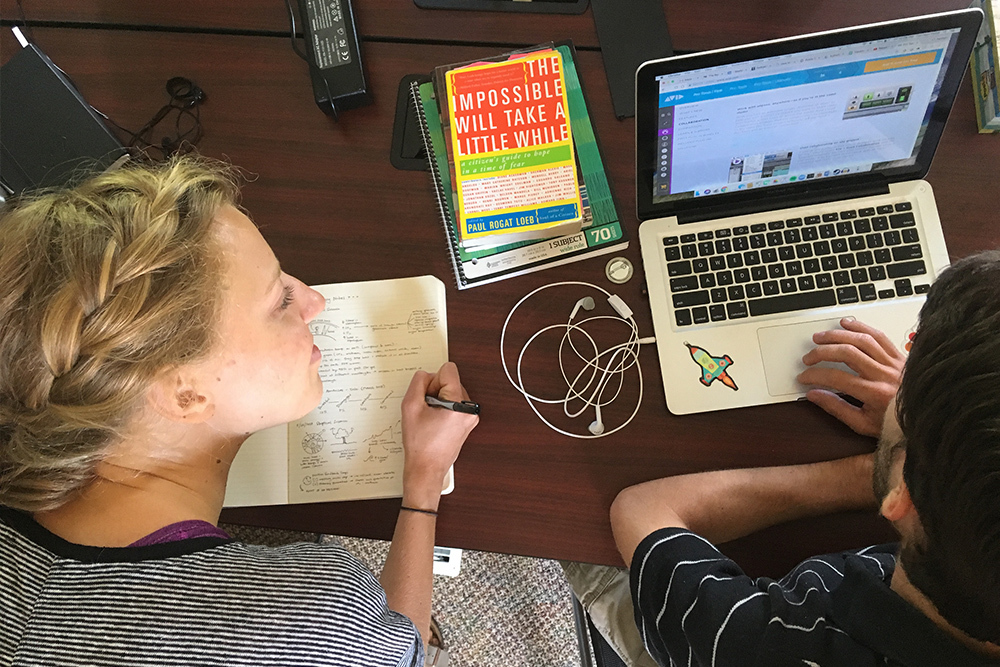The Shifting Climates podcast and website – aimed at “rehumanizing the conversation” on climate change by connecting it to topics of faith and justice – has released its first four episodes, to broad reception.
The first two episodes, which each received over 400 views on their initial release days, featured interviewees from Illinois, New York, Tennessee, West Virginia and Zimbabwe discussing how climate change has affected them, how their faith interacts with their beliefs about climate change, and their response to it.
Episodes three and four added voices from Indiana, Ohio, Pennsylvania and Nepal. The remaining six episodes of season one will be released on Tuesday mornings into March and include stories from El Salvador and Native American traditions, and urban environmental justice movements. Season two will also include 10 episodes and will be released beginning this summer. [Editor’s note, 7/1/2019: Click here to read about the second season.]
The podcast and website is the work of the first Center for Sustainable Climate Solutions (CSCS) Climate Futures Fellows, all 2018 EMU graduates. Harrison Horst and Michaela Mast are the full-time podcast hosts and Sarah Longenecker is the creator of its interactive website of podcast materials that includes her photography.
Their work has been invigorating – and often raised “more questions than answers,” they wrote in comments (see below) about the ongoing experience.

“Some of our most memorable interviews were also the hardest,” wrote Horst. “I think it’s been important that we couldn’t just avoid people who disagree with us. In fact, those conversations were the ones in which we often learned the most.”
“For me, the podcast has transformed a paralyzing conversation into an empowering one,” Mast said. “I hope that for others as well – that as people listen to our podcast, it will equip them with stories, new language and a way to process their own questions, so that they might be able to find their own community of collaborators.”
The year-long fellowships with CSCS – a partnership between Eastern Mennonite University, Goshen College and Mennonite Central Committee to advance “thinking and action in Anabaptist and other faith communities to mitigate climate change” – will culminate in a presentation at the Mennonite Church USA Convention in Kansas City in July.
Horst, Mast and Longenecker recently responded to questions about their fellowship experiences:
What are some favorite anecdotes from interviews and visits?
Horst: Some of our most memorable interviews were also the hardest. Having a microphone in hand gives you an excuse to ask total strangers some deeply intimate questions, but the flipside of that is also true – if things get tense, you have to stick it out and continue having that conversation. For people like us, who maybe tend to shy away from conflict, I think it’s been important that we couldn’t just avoid people who disagree with us. In fact, those conversations were the ones in which we often learned the most.
While setting up one interview over the phone, we were warned that “they didn’t want to talk politics” because of their sensitive position as a government official, which put us on edge as the interview drew nearer. But we ended up having a ton of fun, staying and talking with them for nearly two hours, laughing a lot and getting into some deep conversations that we weren’t expecting at all.
The process of lining up interviews wasn’t always smooth sailing, either. We often received referrals for other locals from our interviews, which led to a few frantic moments where we tried to sneak in one last interview before leaving the area for good. One man in Pittsburgh said he was even willing to wake up before our train left at 6:30 the next morning to talk with us – although thankfully, we were able to interview him the evening before, just before another one of his speaking engagements (which we actually caused him to be late to – Yikes!).
But my favorite instance of this was when we managed to sneak in an interview during our six-hour train layover in Chicago. Luckily, the Amtrak station in Chicago isn’t too far away from the downtown area!
Longenecker: One thing I’ve found with this project is that people are eager to talk about climate change. Whether they agree that it’s happening or not, it seems that people are craving an outlet to share and process their thoughts on climate change. In one interview, we didn’t ask a single question until we were almost 30 minutes into the interview; the person we were interviewing jumped right in and the conversation ended up being one of the most honest and respectful discussions we’ve had. It was refreshing to me how upfront they were about their beliefs.

Why should people listen?
Horst: We aren’t climate specialists, or researchers, or professional communicators, or even podcasters – and we make a lot of mistakes. But I think that the questions we’re asking often go unsaid in our society, and several people have told us that it’s been reinvigorating to have those questions named and not avoided. We actually don’t talk about the science of climate change that much at all, and we’re not setting out to prove or disprove anything at all, and I think that gives this podcast a more honest feeling. We really are just three young people trying to figure out what it means to live in a world of shifting climates – both atmospheric and political.
Mast: Before this project, talking and thinking about climate change was too daunting to be constructive. It’s a very politically charged topic, and I tend to avoid debates. And confronting the predictions they’re making for the future is so overwhelming – at least I find it easy to feel afraid and disheartened. But what this project is allowing me to do is confront those fears with other people. Even though an effective response to climate change can feel impossible most days, having friends to do it with makes it all the more hopeful. It’s transformed a paralyzing conversation into an empowering one. And so I hope that for others as well – that as people listen to our podcast, it will equip them with stories, new language, and a way to process their own questions, so that they might be able to find their own community of collaborators.
Longenecker: Climate change is a global issue, inherently, and certainly conversations about climate justice should include a discussion of the disproportionate effects of climate change on other countries. But in my experience, conversations in the Mennonite church sometimes focus so much on global equality that we overlook local inequalities and divisions. One of my hopes for this podcast is that it will push Mennonite audiences, specifically, to look locally as much as globally.
What are you most excited about for the future episodes?
Horst: We’re starting to realize that the great thing about making podcasts is that, when done well, they often raise more questions than answers. To us, Shifting Climates represents more the beginning of a conversation than the end. It is so exciting to be part of a project like this and watch the conversations evolve over the course of weeks and months, and I’m excited to continue that process. The questions we ask in our podcast episodes are ones we’ve been grappling with a while, and it’s actually really cathartic to name those questions and face them head on. I am sure that subsequent conversations with listeners will continue to spark new ideas and raise new questions, and it’s really an honor to be in the middle of that, at the nexus of so many interconnected conversations.

Mast: I am most invigorated when climate conversations end up having more to do with race, class, gender and discovering a good life for all people, which seems to be true most of the time! The second half of our season will delve into some of those areas more deeply. We have some amazing interviews to share.
Longenecker: I’m looking forward to incorporating more conversations about race into our episodes – specifically conversations about environmental racism in the U.S. – because I think that’s a topic that isn’t discussed enough in Mennonite churches. If we’re serious about understanding violence and justice we need to look at how the environment has been, and continues to be used to empower some and disempower others in the U.S. Asking questions such as, Who has access to resources? Who is most protected from natural disaster? Who has the means to relocate and/or rebuild? Who has ownership of or access to the most desirable pieces of land? Who has the cleanest air? And how is this a form of systemic racism?

Wow! So happy to hear you folks are doing this.
It seems some of the really important aspects of climate change
such as racism and power are coming to the fore.
Carry on!